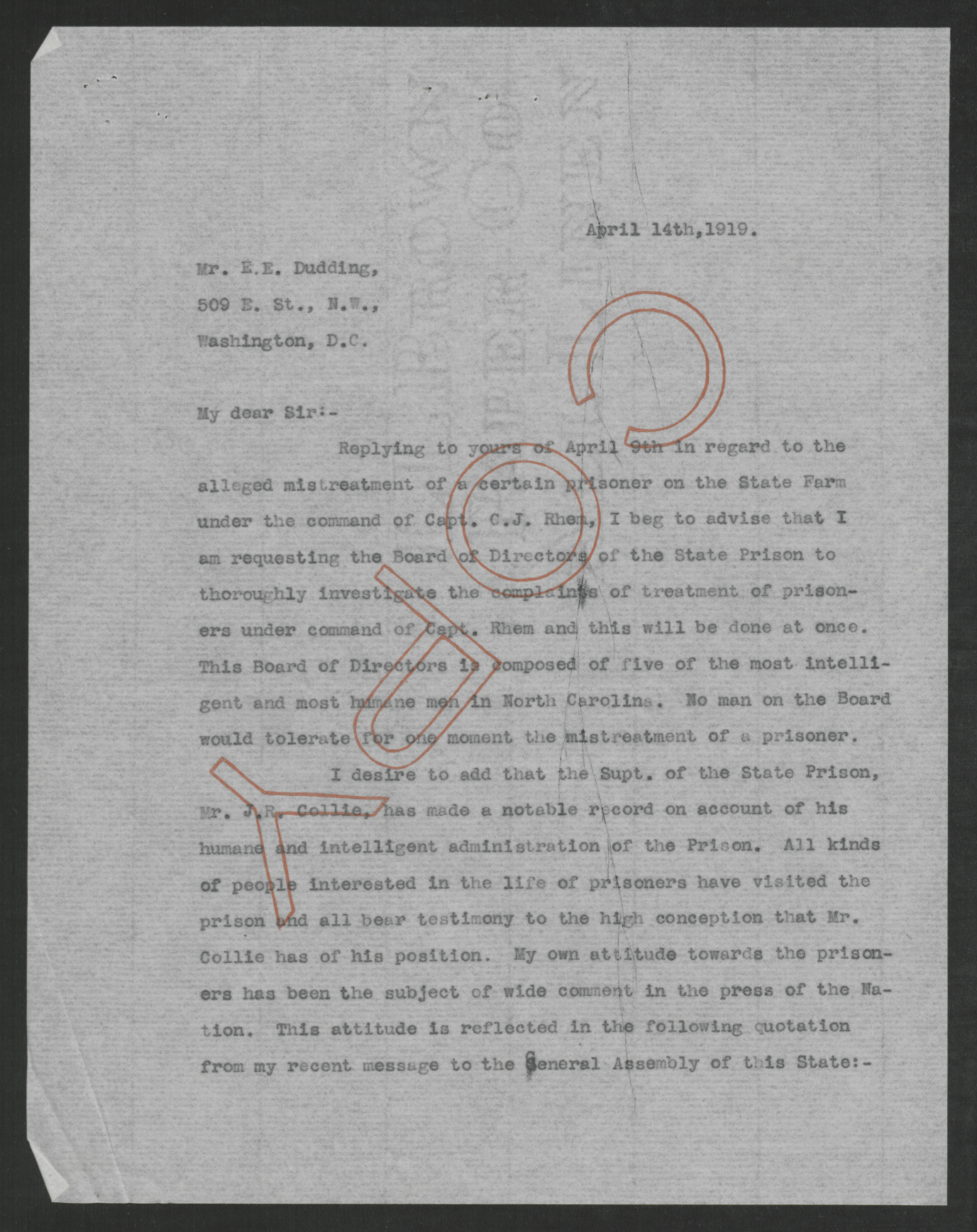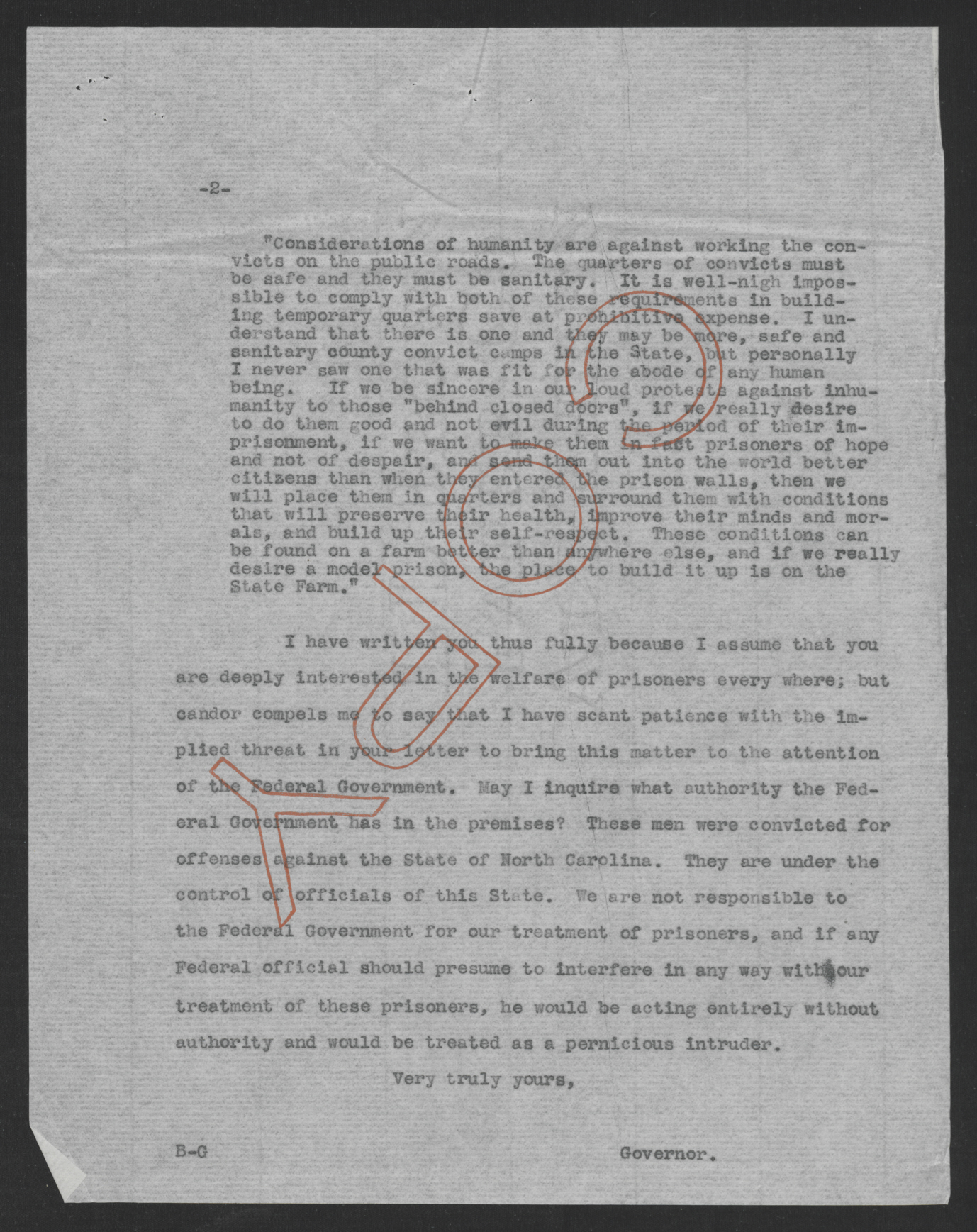April 14th, 1919.
Mr. E. E. Dudding,
509 E. St., N.W.,
Washington, D.C.
My dear Sir:-
Replying to yours of April 9th in regard to the alleged mistreatment of a certain prisoner on the State Farm under the command of Capt. C.J. Rhem, I beg to advise that I am requesting the Board of Directors of the State Prison to thoroughly investigate the complaints of treatment of prisoners under command of Capt. Rhem and this will be done at once. This Board of Directors is composed of five of the most intelligent and most humane men in North Carolina. No man on the Board would tolerate for one moment the mistreatment of a prisoner.
I desire to add that the Supt. of the State Prison, Mr. J. R. Collie, has made a notable record on account of his humane and intelligent administration of the Prison. All kinds of people interested in the life of prisoners have visited the prison and all bear testimony to the high conception that Mr. Collie has of his position. My own attitude towards the prisoners has been the subject of wide comment in the press of the Nation. This attitude is reflected in the following quotation from my recent message to the General Assembly of this State:-
“Considerations of humanity are against working the convicts on the public roads. The quarters of convicts must be safe and they must be sanitary. It is well-nigh impossible to comply with both of these requirements in building temporary quarters save at prohibitive expense. I understand that there is one and they may be more, safe and sanitary county convict camps in the State, but personally I never saw one that was fit for the abode of any human being. If we be sincere in our loud protests against inhumanity to those “behind closed doors”, if we really desire to do them good and not evil during the period of their imprisonment, if we want to make them in fact prisoners of hope and not of despair, and send them out into the world better citizens than when they entered the prison walls, then we will place them in quarters and surround them with conditions that will preserve their health, improve their minds and morals, and build up their self-respect. These conditions can be found on a farm better than anywhere else, and if we really desire a model prison, the place to build it up is on the State Farm.”
I have written you thus fully because I assume that you are deeply interested in the welfare of prisoners every where; but candor compels me to say that I have scant patience with the implied threat in your letter to bring this matter to the attention of the Federal Government. May I inquire what authority the Federal Government has in the premises? These men were convicted for offenses against the State of North Carolina. They are under the control of officials of this State. We are not responsible to the Federal Government for our treatment of prisoners, and if any Federal official should presume to interfere in any way with our treatment of these prisoners, he would be acting entirely without authority and would be treated as a pernicious intruder.
Very truly yours,
Governor.
B-G
Date:
Sender:
Recipient:
Repository:
Collection:
Places:
»» »» Washington, D.C.






